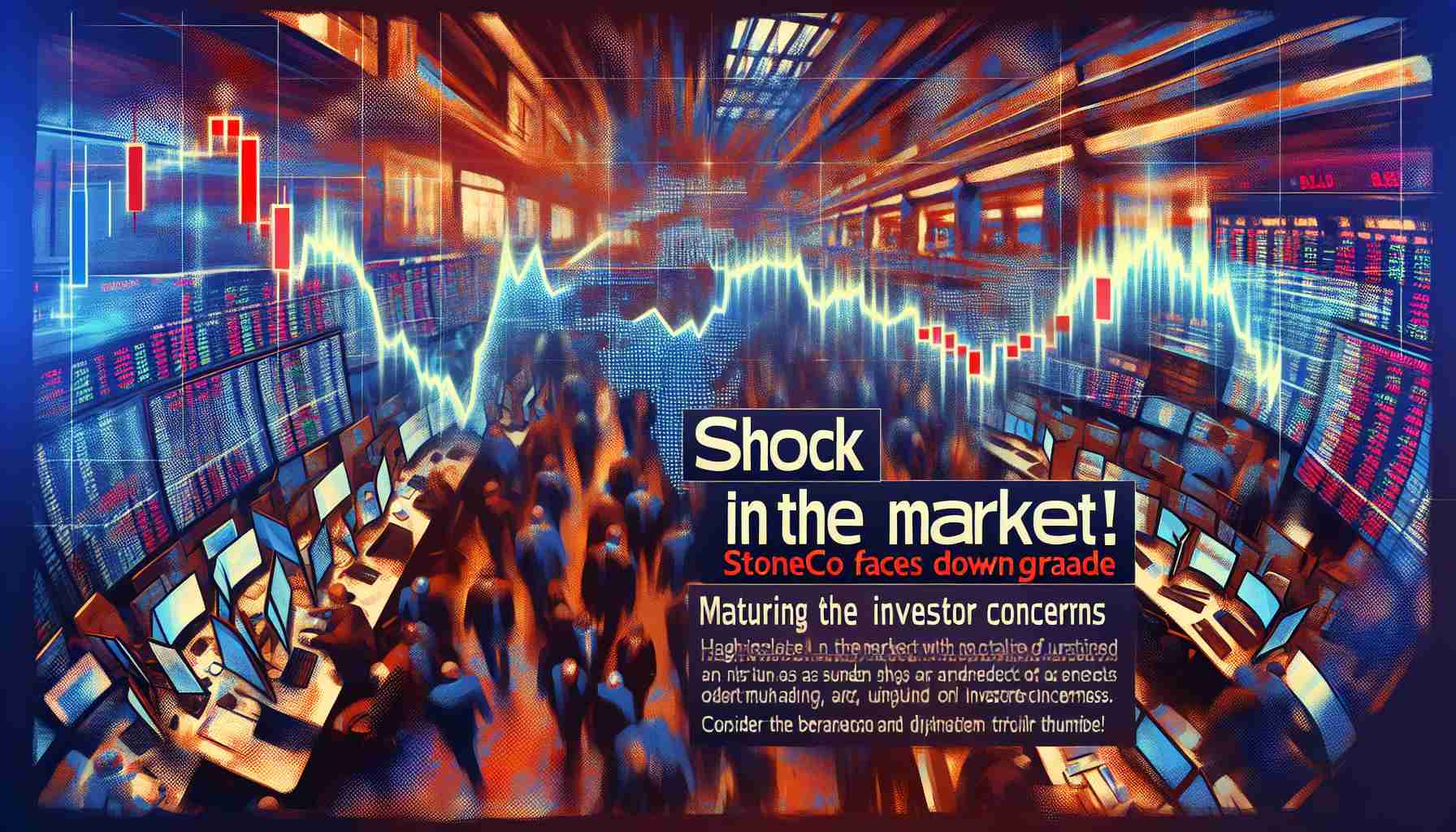StoneCo’s Stock Takes a Hit
The Brazilian fintech company StoneCo (STNE) is experiencing a notable decline in its stock prices, dropping by 4% following a recent downgrade from Citi. In a statement to investors, analyst Gustavo Schroden revised his assessment of StoneCo from a “Buy” to “Neutral.”
Schroden’s downgrade arises from concerns about the impact of Brazil’s central bank decision to raise the benchmark lending rate by one percentage point to 12.25%, with potential increases to 14.25% this year. This financial environment is expected to strain StoneCo’s operations, resulting in heightened costs and reduced transaction volumes. The analyst also speculated that the firm might need to revise its net income projections for 2027.
In a previous gesture to boost investor confidence, StoneCo had announced a substantial share buyback program valued at approximately $330 million, superseding an earlier program worth $165 million. Currently, StoneCo’s stock trades at a forward price-to-earnings ratio of eight and a low Enterprise Value/EBITDA ratio of 3.1. Despite experiencing a slight increase over the past month, the stock has faced a harsh 24% decrease over the last three months, and a staggering 52% drop in the past year. As investors navigate these challenges, many are shifting their focus to potentially more lucrative opportunities in the AI sector.
Broader Implications of StoneCo’s Stock Decline
The challenges faced by StoneCo resonate beyond the confines of the company, reflecting significant shifts in the Brazilian economy and the fintech landscape. As Brazil’s central bank raises interest rates to combat inflation, the increased cost of borrowing will have a ripple effect throughout society. Small business owners, often dependent on affordable credit to fuel growth, may face tighter margins and constrained cash flow, impeding overall economic vitality.
The stock’s decline could also trigger a cultural shift in investor sentiment. With the fintech sector increasingly becoming a focal point for innovation, the drop in StoneCo’s stock could lead investors to prioritize companies that demonstrate resilience and adaptability in a fluctuating market. Faith in traditional financial systems may wane, prompting a deeper exploration of decentralized financial services and alternative currencies.
Looking ahead, environmental considerations may also play a role in corporate strategies as investors increasingly favor companies committed to sustainability. Fintech firms, including StoneCo, may need to pivot towards innovative solutions that address not only economic but also social and environmental concerns to secure long-term relevance.
In the global arena, Brazil’s economic fluctuations could affect foreign investment strategies, with potential ramifications for emerging markets. As competition intensifies, the fintech industry may witness an accelerated drive towards digital transformation, altering the landscape for years to come.
StoneCo Faces Challenges Amid Brazil’s Economic Shifts: What Investors Need to Know
Overview of StoneCo’s Current Situation
The Brazilian fintech giant StoneCo is currently grappling with significant stock price declines, recent reports indicate that the company’s shares dropped by 4% following a downgrade by Citi analyst Gustavo Schroden, shifting his recommendation from “Buy” to “Neutral.” This adjustment reflects mounting concerns regarding the Brazilian economic landscape and the implications of recent monetary policy changes.
Economic Context and Implications
Brazil’s central bank recently raised its benchmark lending rate by one percentage point, reaching 12.25%. Analysts predict that this could rise to 14.25% later this year. Such changes could greatly affect StoneCo’s operations by increasing borrowing costs and potentially reducing transaction volumes. These dynamics may compel StoneCo to revise its financial projections, including net income forecasts for 2027.
Company Strategies in Response to Market Conditions
To counterbalance investor apprehension, StoneCo launched a significant $330 million share buyback program, more than doubling its prior initiative of $165 million. This strategy is designed to enhance shareholder value in light of the turbulent market environment.
Stock Performance Metrics
As of now, StoneCo’s stock is trading at a forward price-to-earnings ratio of 8 and an Enterprise Value/EBITDA ratio of 3.1. While these metrics might suggest that the stock is undervalued, investor sentiment has been perturbed by the company’s recent performance. Over the past three months, the stock has sunk by 24%, and shockingly, it has experienced a 52% decline in the past year.
Investors Eyeing Alternatives
As challenges mount for StoneCo, investors are increasingly considering reallocating their investments, particularly toward burgeoning sectors such as artificial intelligence (AI). This pivot reflects a broader trend where stakeholders are diversifying into areas perceived as more resilient or high-growth, especially in uncertain economic climates.
Pros and Cons of Investing in StoneCo
Pros:
– Recent share buyback program could shore up stock prices.
– Low valuation metrics might present a buying opportunity for potential investors.
Cons:
– Economic pressures from rising interest rates could hurt profitability.
– Historical stock volatility may deter risk-averse investors.
Future Predictions and Market Analysis
Given the current financial and economic environment in Brazil, analysts believe that it is critical for StoneCo to adapt swiftly since potential further increases in interest rates could exacerbate existing challenges. Continuous scrutiny of the fintech sector and StoneCo’s strategic maneuvers will be vital for gauging future performance.
Final Thoughts
Investors interested in StoneCo or the Brazilian fintech sector should remain vigilant to changes in both market conditions and the company’s financial strategies. Monitoring external economic indicators, alongside company performance metrics, will be essential in making informed decisions.
For further insights and updates on fintech trends and investment strategies, visit Forbes.








